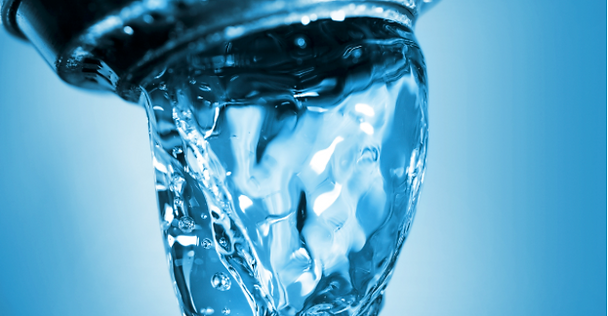Is Miami Water Quality Safe? A 2024 Guide
- adriana
- Jul 16, 2024
- 4 min read
Updated: Jul 16, 2024
Water quality is a fickle thing, and it can change relatively swiftly. In this article, we will be taking an in-depth look at the water quality in the city of Miami, Florida. If you are a native of that sunny city, or plan to visit, it pays to know the type of water quality you can expect to deal with. Fortunately, there is a wealth of information available, starting with the Miami-Dade County 2023 Water Quality Report. All cities in the United States are required by federal law to release this type of report each year, to help our nation’s citizens make informed decisions about their drinking water.

Importance of Clean Water for Health and Well-Being
While everyone knows that water quality matters, people may not be fully aware of the dangers posed by waterborne contaminants, even in developed countries with generally well-maintained water treatment systems. Water is one of the most powerful solvents in the world, which means that it takes on trace amounts of nearly everything it comes into contact with. Common water contaminants can include mineral content such as calcium and magnesium, and potentially heavy metals such as lead and arsenic, as well as microorganisms, parasites, bacteria, volatile organic compounds, and a whole host of human-made synthetic substances.

Water quality is highly changeable as well, so it pays to keep abreast of changing conditions in the area you live, as industrial activity, aging pipes, or natural disasters can all create new problems for previously sound water systems.
Key Indicators of Water Quality
Miami gets the majority of its drinking water from the Biscayne Aquifer in Southern Florida. According to the 2023 Miami-Dade water quality report, Miami city water is safe to drink, but in some places it may have trace amounts of trihalomethanes as well as some elevated chromium and selenium levels.

On the whole, however, Miami has good quality drinking water, though there are potential dangers associated with water in all large cities, due to the high concentration of people living in the same place. Keep an eye on your tap water, and watch for any change in color or clarity.
If your water is cloudy, turbid, or otherwise unclear, it could be due to water hardness, organic material, or any number of other potential contaminants. If you suspect that your water has a problem, the best thing to do is mail a sample of your tap water to a laboratory for professional testing.

Current State of Miami Water Quality
According to the most recent report published by the city of Miami, the water is safe to drink, though there are trace amounts of some contaminants, as stated above. You can improve your home drinking water quality by installing a water softener, which works through a process called ion exchange, removing calcium and magnesium from the water, and helping to clean any existing limescale from the water.
Factors Affecting Water Quality in Miami
According to the most recent Miami water quality report, “Because source water supplied to the John E. Preston plant has a higher level of naturally occurring organic materials than the water at the other plants, it goes through a slightly different process called enhanced softening.

It is disinfected, fluoridated and filtered, then it goes through air stripping towers that remove volatile organic compounds.” The addition of chlorine into the drinking water helps to protect against microbial growth, and fluoride is added to help strengthen teeth. Some people would prefer to have these additions removed, however, and the experts at All Filters confirm that this can be accomplished through a combination of sediment, activated carbon, and reverse osmosis filtration.
Health Implications
People have different sensitivities to distinct contaminants, so if you or anyone in your household is suffering from skin irritation, stomach upset, or any other abnormal health conditions, it is a good idea to have your water tested to rule it out as a potential cause. Even with the peace of mind afforded by yearly water quality reports, things can happen to water lines and distribution systems in between check-ups, so it is important to be wary of any changes in your water.
Regulatory Standards and Compliance
The Florida Department of Environmental Protection (FDEP) works hard every year to ensure that Floridians are getting the best water possible from their sinks and faucets. It is important to keep in mind, however, that no water treatment system is infallible, and treatment centers generally don’t even aim for complete sterilization, as that is not a feasible goal. Good is better than perfect when it comes to water filtration, and the team in Florida work hard to ensure that they meet the federal and state requirements.
Tips for Testing Water Quality in Your Own Home
By far the best way to test your tap water is to send a sample to a laboratory for professional testing, but if you can’t afford to do that, there are some simple home tests that you can try. Pour a small amount of dish soap into a glass, then fill it up with tap water.

If the water goes murky or opaque, then you have high levels of water hardness. You can also purchase cheap pH test strips to get an idea of the acidity or alkalinity of your water, and there are home tests for E. Coli and coliform bacteria, two very common microorganisms that end up in water.
The Bottom Line
As far as big cities go, Miami does fairly well at providing safe, potable drinking water to its citizens. Keep an eye on those annual reports and test your water if you have any concerns about its safety and you should be just fine. Even if your water is pretty decent already, you can still benefit from a home filtration system to improve your water’s taste and clarity.

